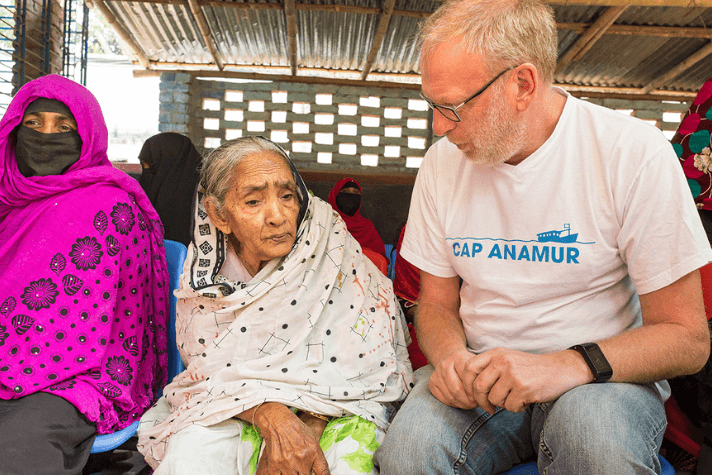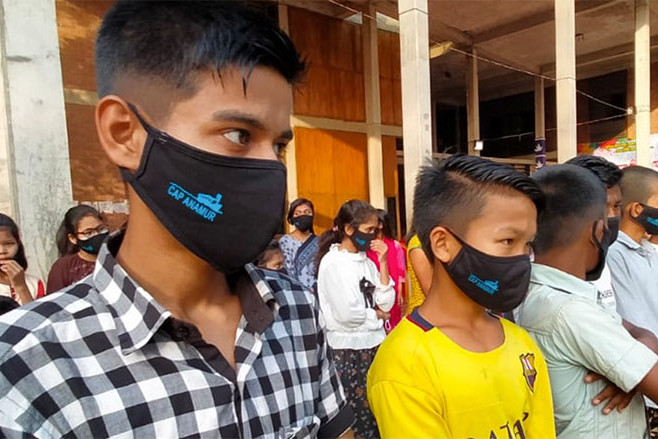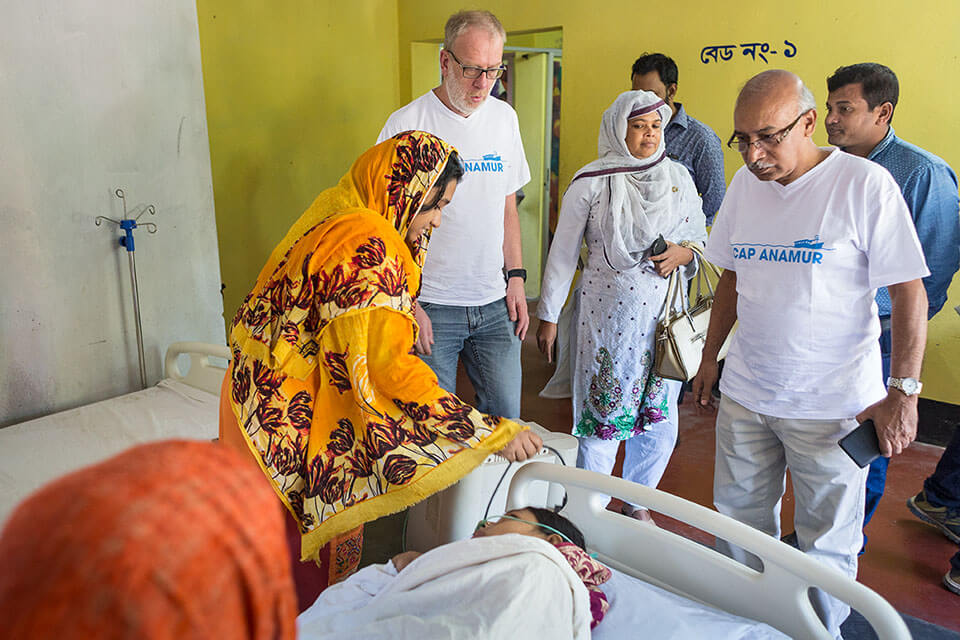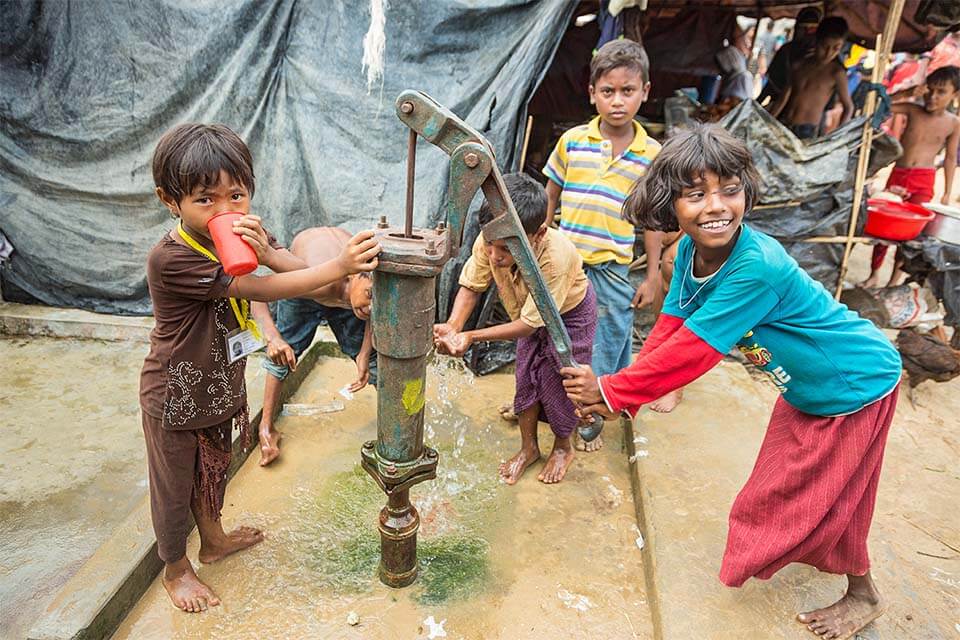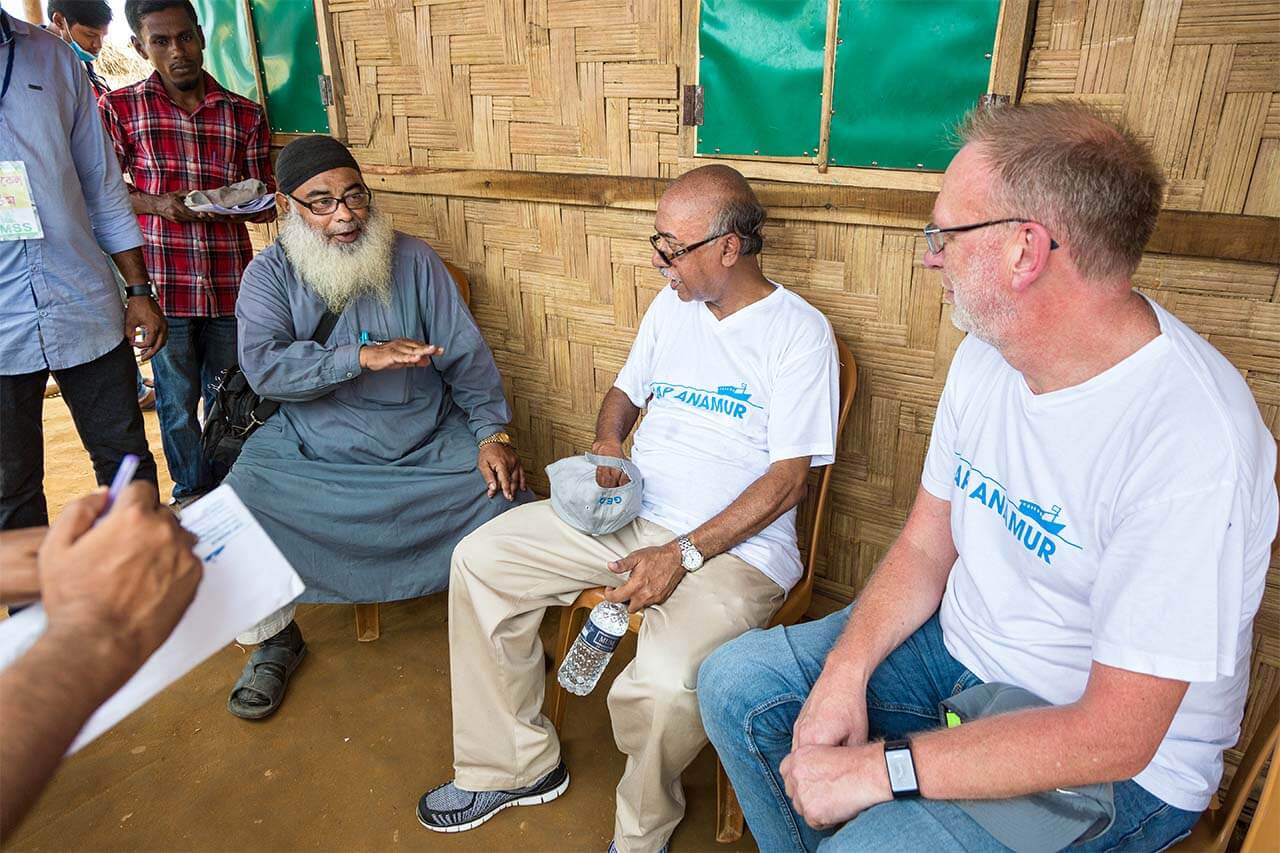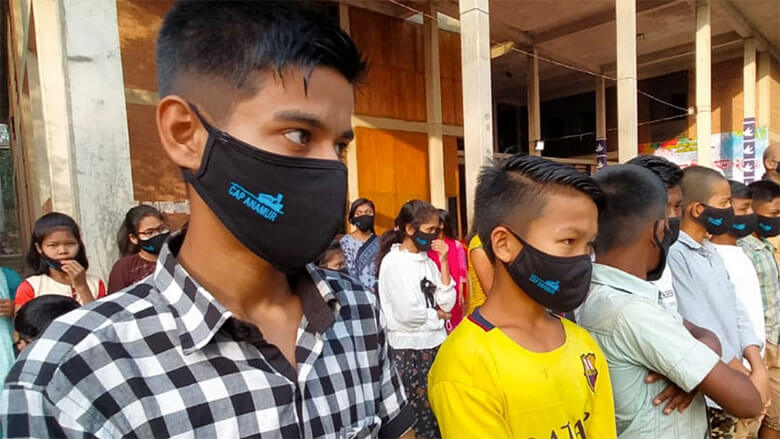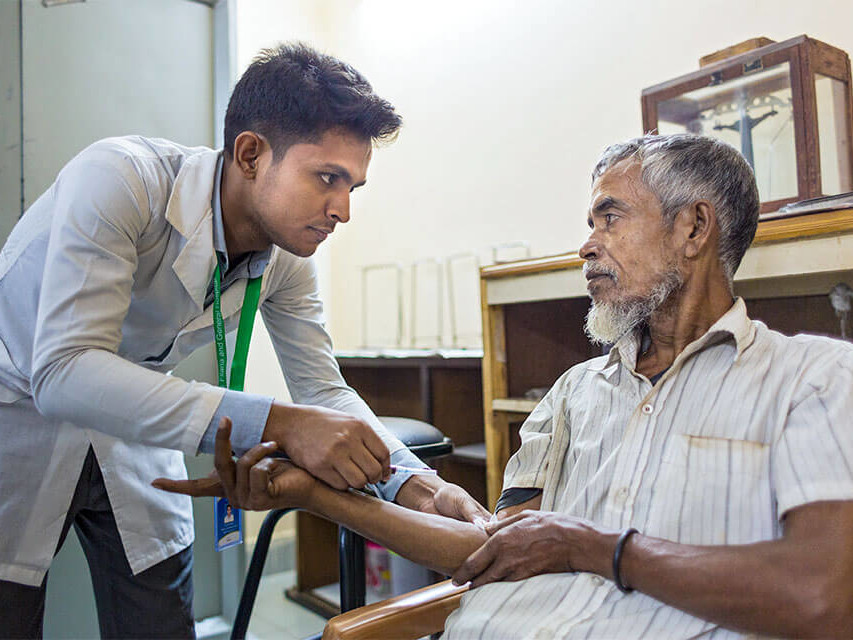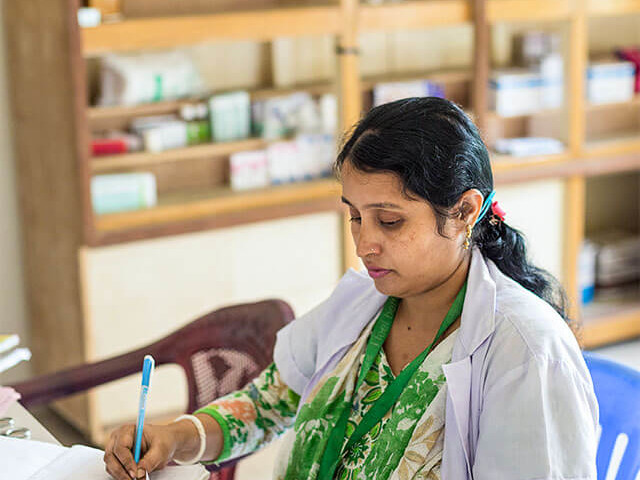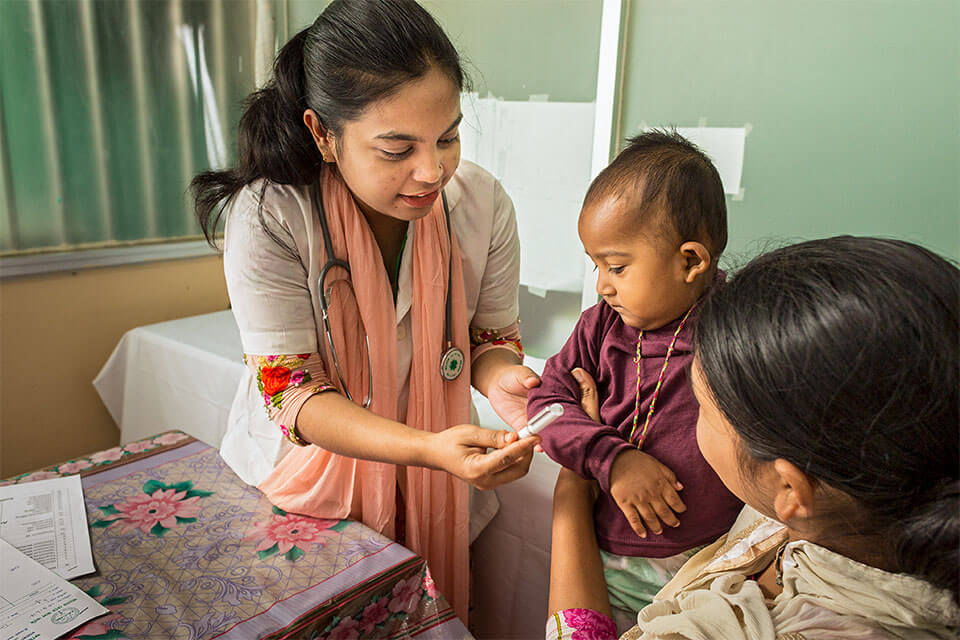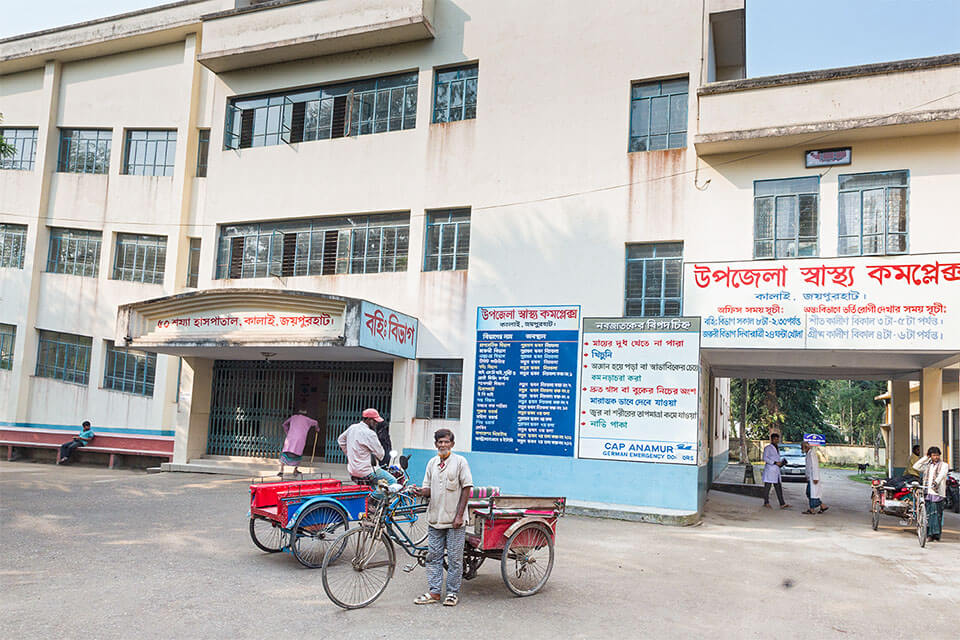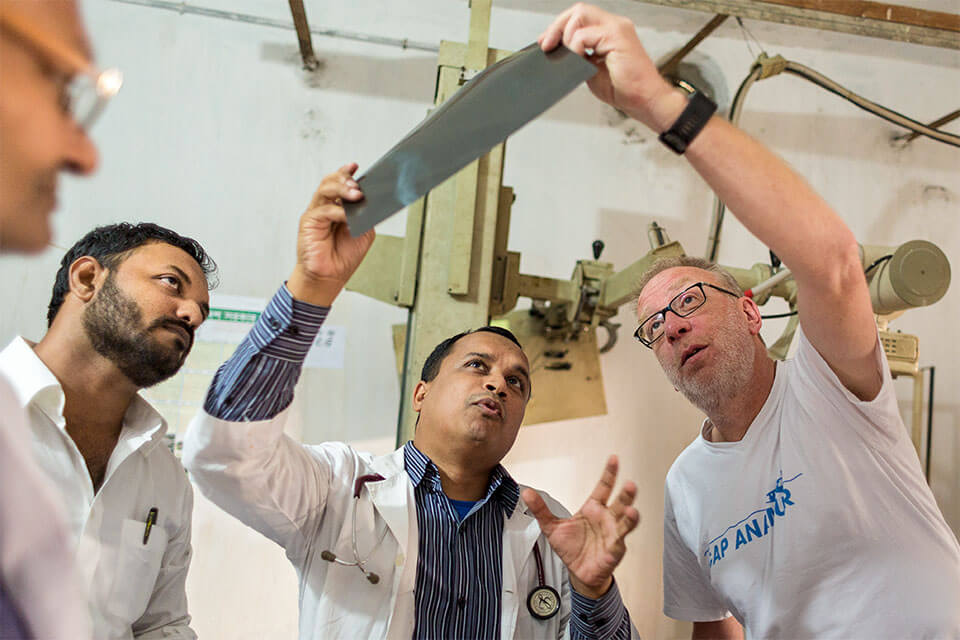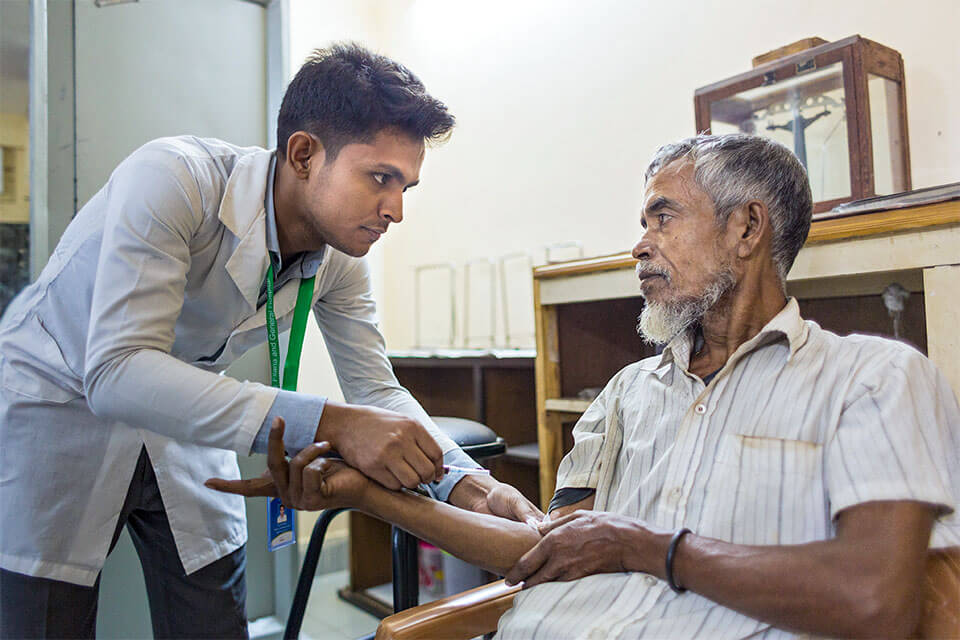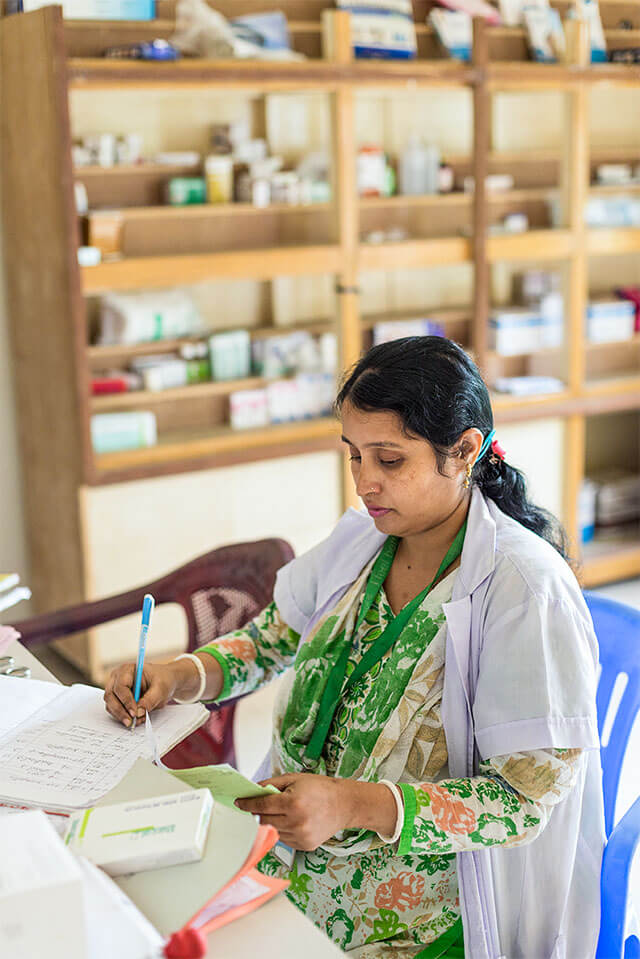Bangladesh
Our work there at a glance:
- Medical treatment free of charge
- special treatment of pregnant mothers in poverty
- Providing school children with protective masks
- Cooperations with regional hospital
- Providing hospital equipment

Bangladesh
Our work there at a glance:
- Medical treatment free of charge
- special treatment of pregnant mothers in poverty
- Providing school children with protective masks
- Cooperations with regional hospital
- Providing hospital equipment
Our goal
Basic medical treatment free of charge for the poorest of the country, especially for those women and children who are deeply neglected.
Latest news
Project reports
Providing Access to Medical Health Facilities for Elderly Women
In Bangladesh, there is one segment of the population that is clearly affected by absolute poverty and thus by inadequate health care: older women in rural areas. Cap Anamur is therefore improving medical care for these women in particular.
The Consequences of the Pandemic for Young Women
Bangladesh is one of the countries that suffered extremely from the Corona pandemic. The country's dense population and overcrowding in urban areas forced the government to adopt a strict lockdown policy from June 2020. The impact of the pandemic on the poorest of the population, and especially on women and girls, is now clearly visible.
Help That Reaches the Poorest in the Country
Bangladesh is one of the poorest countries in the world. Over 40% of the population lives below the absolute poverty line. Women, especially the elderly, are increasingly affected by extreme poverty.
Women Often Excluded from Medical Care
Cap Anamur has been promoting medical care for poor women, especially during pregnancy, in Bangladesh for 14 years. Cooperation with local health care facilities enables them to offer free treatment.
7,000 Masks for School Children in Bangladesh
With the outbreak of the Corona pandemic in April 2020 in Bangladesh, all educational institutions were closed. After almost a year, the first schools reopen and Cap Anamur distributes protective masks to the school children.
Project Coordinator Ensures Our Work on Site
In Bangladesh, Cap Anamur cooperates with four governmental and three non-governmental health facilities. This will provide free medical treatment for some of the poorest in the population.
Key health data
Life expectancy
72/68 years
(women/men)
Infant mortality
33
per 1,000 births
Doctors
0,4
per 1,000 inhabitants
Cap Anamur engagement in Bangladesh
2007 - today
The current situation in Bangladesh
Political situation
After seceding from Pakistan in 1971, Bangladesh has been a parliamentary democracy since 1991. Although fundamental rights such as freedom of speech, freedom of the press and freedom of assembly are guaranteed on paper in the constitution, they are increasingly restricted. According to the German Foreign Office, more than 2,000 people are believed to have been killed in political violence in Bangladesh in 2009, including bloggers, journalists, homosexuals and avowed atheists. Corruption is an everyday occurence.
Since 2017 the country is facing a wave of refugees, as houndreds of thousands members of the Rohingya minority have fled from the neighbouring country Myanmar to Bangladesh.
Social situation
Bangladesch is one of the poorest countries in the world. Large parts of the population are excluded from the educational and healthcare system. Those most affected are women, whose influence on sociopolitical life is still marginal. Many of them can neither read nor write and are economically dependent on their spouse.
Due to unaffordable food prices, the so-called ultra poor often suffer from malnutrition, which in turn increases their susceptibility to disease. However, adequate healthcare is beyond their finacial means. Consequently, treatable diseases remain untreated and can ultimately lead to death. Especially childbirths also carry a considerable potential for danger if, due to lack of finances, they are not carried out with the support of professional staff, but by lay people in a residential hut.
Waiting patients in the General Hospital and Special Clinic of Prof. Dr. Moazzem Hossain. Cap Anamour is supporting hospitals in Bangladesh with equipment and medicine for many years now.
Our engagement in Bangladesh
Cooperation agreements enable the poorest to get free treatment.
Cooperation agreements enable the poorest to get free treatment.
We are currently cooperating with four governmental and three non-governmental health facilities across the country. Our contracts stipulate that the facilities treat indigent patients free of charge, thus opening up the health system to the poorest people in the country. In return, we provide our partners with all necessary medicines, supplies, medical instruments and technical equipment. Especially for women who are severely disadvantaged throughout the country, this offer represents a rare opportunity for adequate medical care, which they are particularly dependent on during pregnancy.
Cap Anamur project manager takes over the organisation of the cooperation
Cap Anamur project manager takes over the organisation of the cooperation
Our long-standing project coordinator on site, Shabbir Ahmed, is in constant exchange with the institutions cooperating with us. He is in charge of the organisation and distribution of technical equipment or medicines to the various hospitals and health facilities. He procures the material in Bangladesh and takes care of logistics. In this way, we also strengthen the regional economy and prevent long delivery routes.
Cap Anamur has masks produced locally and distributes them in the country.
Cap Anamur has masks produced locally and distributes them in the country.
In addition, we have had more than 150,000 masks distributed in Bangladesh since 2021. At last count, around 25,000 masks were sewn and distributed in December 2021. Our local project coordinator took care of the production of the masks. We have had the masks produced by local tailors and staff distribute them at the sites of the cooperating health facilities. Because also the masks, which are especially in times of the Covid pandemic an important measure against the virus, are not affordable for the poorest.
Success in numbers
113,182 patients served
Medical care for patients in the period January to July 2021. Of these, 55,940 were women and 20,315 were children. Thus, over 1/3 of all patients are women.
counteract high maternal mortality
Cap Anamur facilitates pregnancy counselling and prenatal treatment.
7,000 protective masks for school children
Children of very poor families were given masks for limiting the spread of COVID-19 infection.
Food packages for around 2,000 families
We regularly support refugee families with food parcels.
What happens next
Our partnerships will continue in 2025 to ensure that the poorest people, and women in particular, continue to receive medical care.

